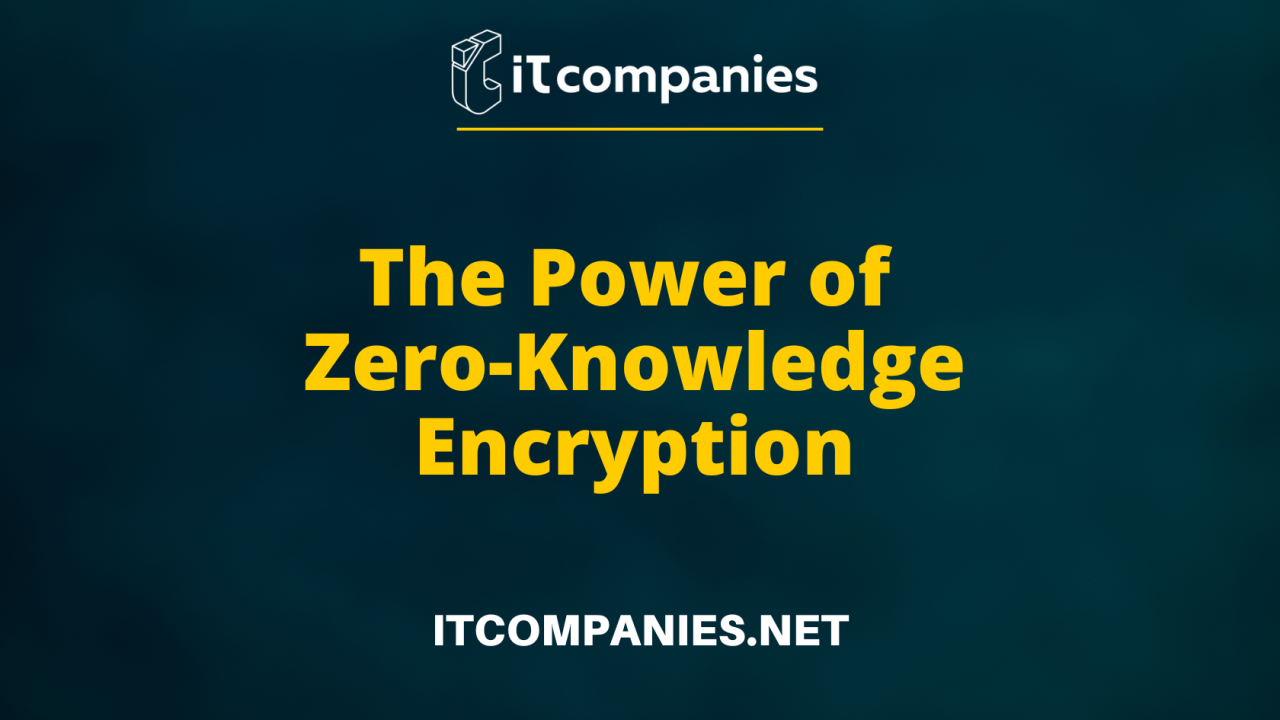
Understanding the Impact of Zero-Knowledge Proofs in Cryptocurrency Privacy A Deep Dive
Understanding the Impact of Zero-Knowledge Proofs in Cryptocurrency Privacy is crucial for grasping the future of digital finance. Zero-knowledge proofs (ZKPs) are revolutionizing cryptocurrency by enabling secure and private transactions. These cryptographic tools allow users to prove statements about data without revealing the data itself. This article delves into the intricacies of ZKPs, exploring their impact on transaction privacy, security, scalability, and the future of cryptocurrency.
Zero-knowledge proofs are a fascinating cryptographic technique that promises to enhance privacy and security in cryptocurrency transactions. By enabling users to prove the validity of certain information without disclosing the actual data, ZKPs address critical limitations of traditional cryptocurrency systems. This article explores the fundamental concepts, various types, and the significant impact of ZKPs on the privacy and security of cryptocurrency.
Introduction to Zero-Knowledge Proofs (ZKPs)

Source: webisoft.com
Zero-knowledge proofs (ZKPs) are a fascinating cryptographic technique that allows one party (the prover) to convince another party (the verifier) of the truth of a statement without revealing any information beyond the validity of that statement. This seemingly paradoxical ability has profound implications, particularly in the realm of cryptocurrency and privacy. Imagine proving you own a certain amount of cryptocurrency without revealing the exact amount or your identity.
That’s the essence of ZKPs.ZKPs leverage complex mathematical principles to establish verifiable claims. Their security stems from the computational difficulty of forging a valid proof, making them a powerful tool for ensuring privacy and security in various applications. This ability to demonstrate ownership or knowledge without revealing sensitive details is crucial in modern cryptography.
Fundamental Concepts Underpinning ZKPs
ZKPs are built on the principles of interaction, proof, and knowledge. The prover and verifier engage in a dialogue, where the prover tries to convince the verifier of a statement without revealing any additional information. The core idea is to prove knowledge without disclosing the actual knowledge itself. A crucial element is computational difficulty – it should be computationally infeasible for a malicious party to create a false proof.
Different Types of ZKPs
Various types of ZKPs exist, each with its own characteristics and trade-offs. The most prominent ones include SNARKs and STARKs.
- SNARKs (Succinct Non-interactive Argument of Knowledge): SNARKs offer extremely succinct proofs, making them highly efficient for verifying claims. They are non-interactive, meaning the proof generation and verification happen in separate steps, and the interaction between the prover and verifier is minimal. This is a significant advantage in terms of speed and scalability. However, constructing SNARKs can be complex and requires specialized knowledge and infrastructure.
- STARKs (Scalable Transparent ARguments of Knowledge): STARKs are gaining popularity due to their scalability and transparency. They offer the potential for handling significantly larger and more complex computations than SNARKs. Their transparency means the proofs are verifiable by anyone, as the underlying computations are accessible. However, the proofs generated by STARKs tend to be slightly larger than SNARK proofs, which can affect efficiency in some applications.
Comparison of ZKP Types
| Feature | SNARKs | STARKs |
|---|---|---|
| Proof Size | Very small | Larger |
| Interactive | Non-interactive | Non-interactive |
| Scalability | Limited | High |
| Complexity | High | Lower |
| Transparency | Less Transparent | More Transparent |
| Efficiency | High | Good, but slightly lower than SNARKs for smaller proofs |
Steps in a Typical ZKP Transaction
The process of a ZKP transaction involves a series of steps, each designed to ensure the integrity and privacy of the transaction.
- Proof Generation: The prover, possessing the specific knowledge, uses a cryptographic algorithm to generate a ZKP that proves the statement. This involves complex mathematical computations.
- Proof Verification: The verifier, possessing the necessary verification parameters, validates the ZKP to ensure its authenticity and correctness. This process is computationally efficient and fast.
- Transaction Confirmation: Once the proof is verified, the transaction is considered valid and can be processed, in the context of cryptocurrencies, this would involve updating the ledger and completing the transaction.
Cryptocurrency Privacy and the Need for ZKPs
Maintaining the privacy of cryptocurrency transactions is a crucial aspect of its adoption. Users often desire to shield their financial activities from prying eyes, whether it’s from governments, malicious actors, or simply maintaining personal financial autonomy. This desire for privacy has spurred the development of innovative techniques, particularly Zero-Knowledge Proofs (ZKPs), which promise a more secure and private way to handle cryptocurrency transactions.Traditional cryptocurrency systems, while providing a decentralized and secure platform, often struggle with privacy.
The very nature of a public ledger, where every transaction is recorded for all to see, creates a vulnerability. Anonymity techniques, while present, are frequently insufficient to completely hide the identities of participants in transactions. This is where the power of ZKPs shines, offering a solution to the inherent privacy challenges of cryptocurrency.
Challenges in Maintaining Cryptocurrency Transaction Privacy
Cryptocurrency transactions, while often seen as anonymous, are not truly private in the sense of being completely hidden. Public blockchains record every transaction, making it possible to trace the movement of funds, even if individual accounts are pseudonymous. This transparency, while essential for security, presents a significant barrier to complete privacy. Further complicating matters are the potential for surveillance and regulatory scrutiny, as well as the risks of transaction analysis by malicious actors.
These challenges make maintaining genuine user privacy in cryptocurrency a significant hurdle.
Limitations of Traditional Cryptocurrency Anonymity Techniques
Several techniques aim to enhance privacy in cryptocurrency transactions, such as coin mixers and privacy coins. However, these methods often fall short of providing robust and unbreakable anonymity. Coin mixers, while attempting to obscure transaction origins, are vulnerable to analysis and, at times, are subject to regulatory scrutiny. Privacy coins, while attempting to hide the amount and recipient of transactions, still require some form of public ledger, leaving them susceptible to various analytical techniques and still exposing some details.
Zero-knowledge proofs are revolutionizing cryptocurrency privacy, allowing transactions without revealing sensitive information. This fascinating technology, while potentially altering the financial landscape, doesn’t preclude the exploration of natural remedies for health. For example, did you know that lemongrass might offer surprising cardiovascular benefits? Learning more about its potential is worthwhile, as detailed in this article Discover the Hidden Potential of Lemongrass for Cardiovascular Health.
Ultimately, though, the innovative use of zero-knowledge proofs continues to reshape the way we think about digital security and privacy.
The limitations of these traditional approaches highlight the need for a more secure and robust method of privacy enhancement.
How ZKPs Address the Limitations
Zero-Knowledge Proofs (ZKPs) offer a compelling solution to these privacy limitations. ZKPs allow one party (prover) to prove to another party (verifier) that a statement is true without revealing any information beyond the fact that the statement is true. In the context of cryptocurrency, this means a user can prove they own a certain amount of cryptocurrency without revealing the actual amount or their identity.
This is achieved by generating a cryptographic proof that satisfies certain conditions, while maintaining the secrecy of the underlying data. This allows for verifiable transactions while protecting the privacy of the participants. Imagine a system where you can prove you have enough funds to make a transaction without revealing the precise balance in your account.
Examples of Cryptocurrencies Leveraging ZKPs
Several cryptocurrencies are exploring or utilizing ZKPs to enhance user privacy. Examples include projects employing ZK-SNARKs (Zero-Knowledge Succinct Non-interactive ARguments of Knowledge) or similar cryptographic techniques to create more private transactions. These projects are at various stages of development, but the potential for significant advancements in cryptocurrency privacy is undeniable.
Comparison of Traditional and ZKP-Based Privacy Methods
| Feature | Traditional Privacy Methods | ZKP-Based Privacy Methods |
|---|---|---|
| Transparency | Partially transparent; some details are hidden but not completely | Highly private; transaction details are masked while maintaining verifiability |
| Security | Vulnerable to analysis and scrutiny; often susceptible to exploits | Robust security; cryptographic proofs enhance resistance to manipulation and analysis |
| Scalability | Potentially limited scalability due to the complexity of the mixing process | Potentially higher scalability due to the efficiency of cryptographic proofs |
| Regulatory Compliance | May face challenges with regulatory oversight and compliance | Offers potential for better regulatory compliance by providing verifiable privacy |
Impact of ZKPs on Transaction Transparency
Zero-knowledge proofs (ZKPs) are revolutionizing the way we think about privacy in cryptocurrency. While the core principle of ZKPs is to allow for verifiable claims without revealing the underlying data, their impact on transaction transparency is multifaceted. They don’t eliminate transparency entirely, but rather shift the balance, allowing for a more nuanced and tailored approach to visibility.ZKPs enable a fascinating dance between privacy and auditability.
They allow users to demonstrate the validity of a transaction without revealing the specifics of the transaction itself. This is crucial for preserving privacy in a world where sensitive financial information is often at stake. Crucially, this privacy is not achieved at the cost of complete opacity. Auditors and regulators can still verify the overall integrity of the blockchain, ensuring compliance and trust.
How ZKPs Affect Transaction Transparency
ZKPs affect transaction transparency by separating the verification of the
- validity* of a transaction from the disclosure of the
- details* of the transaction. This allows the blockchain to record the fact that a transaction occurred, but not the specifics of who sent what to whom. Imagine a ledger where each entry is a hash, indicating that a transaction occurred, but not the value or the identities involved. ZKPs provide a framework for this type of verification.
Zero-knowledge proofs are fascinating in the crypto world, ensuring privacy without revealing sensitive data. It’s like a secret handshake in the digital realm. Thinking about how potent natural remedies can be, like lemongrass, which has amazing antibacterial properties, Amazing Ways Lemongrass Fights Bacteria and Strengthens Your Health highlights how nature offers powerful solutions. Ultimately, these advanced cryptographic techniques are key to maintaining privacy in the blockchain ecosystem.
How ZKPs Enable Privacy Without Sacrificing Auditability, Understanding the Impact of Zero-Knowledge Proofs in Cryptocurrency Privacy
ZKPs empower users to prove certain properties about their transactions without revealing the underlying data. For example, a user could prove that they have enough funds to complete a transaction without revealing the exact balance. This allows for privacy, as no specific financial details are disclosed, but still allows for the blockchain to validate the transaction. This ensures that the system is secure and trustworthy.
The blockchain can verify that a transaction met the necessary conditions (sufficient funds, etc.) without revealing the actual amounts.
Zero-knowledge proofs are fascinating in the crypto world, ensuring privacy in transactions. It’s like a superfood for digital security, ensuring anonymity while still validating transactions. This concept is incredibly useful, but also surprisingly complex, like learning about the nutritional benefits of a superfood like moringa leaves, which are packed with vitamins and minerals. Why Moringa Leaves Are a Superfood for a Healthier Lifestyle demonstrates how seemingly simple ingredients can be powerful.
Understanding the nuances of zero-knowledge proofs is crucial for navigating the future of cryptocurrency.
Trade-offs Between Privacy and Transparency in ZKP-Based Systems
There’s a fundamental trade-off between privacy and transparency in ZKP-based systems. Complete privacy comes at the cost of a limited ability to audit transactions. Conversely, greater transparency might necessitate a loss of privacy. The specific balance depends on the implementation of the ZKP system and the specific needs of the users and the ecosystem. This balance is crucial for building trust and encouraging adoption.
Levels of Transaction Visibility in Different ZKP Implementations
Different ZKP implementations offer varying degrees of transaction visibility. A system might allow for the verification of a transaction’s validity without revealing the sender or receiver. Other implementations might allow for some level of visibility into the transaction’s value range. The key is that the level of visibility is explicitly controlled and designed in the ZKP scheme.
| Implementation | Transaction Visibility |
|---|---|
| Basic ZKP | Verification of transaction validity only |
| Enhanced ZKP | Verification of transaction validity and value range |
| Advanced ZKP | Verification of transaction validity, value range, and some limited information about the parties involved (e.g., specific amounts within a certain range). |
Role of ZKPs in Enhancing User Trust and Security
ZKPs play a critical role in enhancing user trust and security in cryptocurrency systems. By enabling privacy without sacrificing auditability, they build trust in the system. Users feel safer knowing that their sensitive financial information is protected, while the system retains the ability to verify transactions. This balance fosters a more secure and trustworthy ecosystem for all participants.
This trust, in turn, encourages wider adoption of these systems.
ZKPs and the Scalability of Cryptocurrencies: Understanding The Impact Of Zero-Knowledge Proofs In Cryptocurrency Privacy

Source: medium.com
Zero-knowledge proofs (ZKPs) are rapidly emerging as a crucial technology for enhancing the scalability of cryptocurrency networks. Their ability to verify transactions without revealing sensitive data allows for significant improvements in transaction throughput and reduces the computational burden on the blockchain. This efficiency translates to faster transaction times and a more robust overall network.ZKPs achieve this by verifying the validity of transactions without disclosing the specifics of those transactions.
This dramatically reduces the computational resources required compared to traditional blockchain verification methods, enabling the handling of a much higher volume of transactions per second. This has profound implications for the future of cryptocurrency, potentially making it more accessible and practical for everyday use.
ZKPs and Reduced Computational Load on the Blockchain
Traditional blockchain systems often struggle to handle a large number of transactions concurrently due to the computational resources needed to verify each transaction. The cryptographic hashing and verification processes involved in traditional blockchain validation are computationally intensive. ZKPs, however, allow for the verification of a transaction’s validity without revealing the details of the transaction itself. This significantly reduces the computational load on the network.
Instead of the entire blockchain needing to process the details of every transaction, ZKPs enable a more efficient verification process, leading to faster transaction confirmation times.
Potential for Improved Transaction Throughput
ZKPs have the potential to significantly improve transaction throughput on cryptocurrency networks. By verifying transaction validity without disclosing the details, ZKPs can handle a considerably higher volume of transactions per second. This is achieved by offloading the computational burden of transaction validation from the main blockchain to a separate, more efficient verification process. The result is a faster, more responsive network that can accommodate a larger number of users and transactions.
Comparison of Blockchain Scalability with and without ZKP Implementations
| Feature | Blockchain without ZKP | Blockchain with ZKP |
|---|---|---|
| Transaction Verification | Requires processing transaction details on the main blockchain | Verifies transaction validity without revealing transaction details |
| Computational Load | High computational load on the blockchain | Significantly lower computational load on the blockchain |
| Transaction Throughput | Limited transaction throughput | Potentially higher transaction throughput |
| Scalability | Limited scalability | Enhanced scalability |
Examples of ZKP Usage in Cryptocurrency Performance Improvement
Several cryptocurrencies are exploring the use of ZKPs to enhance their performance. For instance, projects utilizing ZKPs are aiming to reduce transaction fees and improve transaction speeds. The implementation of ZKPs in various blockchains is still in its early stages, but the early results show significant potential for increased scalability. Some protocols, such as Zcash and other privacy-focused cryptocurrencies, are already incorporating ZKPs to achieve higher transaction throughput and maintain privacy.
These examples demonstrate the tangible impact of ZKPs on the performance and scalability of cryptocurrency networks.
Security Implications of ZKP Implementation
Zero-knowledge proofs (ZKPs) offer exciting possibilities for enhancing privacy in cryptocurrency systems. However, integrating ZKPs into these systems introduces new security considerations that must be carefully addressed. The potential for vulnerabilities and the need for robust mitigation strategies are paramount to the successful and secure deployment of ZKP-based cryptocurrencies.Implementing ZKPs requires a deep understanding of the underlying cryptographic principles and the specific characteristics of the chosen ZKP scheme.
A misconfiguration or a subtle flaw in the implementation can create a significant security risk, potentially leading to compromised user funds or a breach of privacy. Understanding these risks is crucial for building trust and ensuring the long-term viability of ZKP-based cryptocurrencies.
Security Considerations in ZKP Implementation
Implementing ZKPs within cryptocurrency systems demands a comprehensive approach to security. Careful consideration must be given to the choice of ZKP scheme, the design of the cryptographic protocols, and the implementation details. A flawed implementation can lead to significant security vulnerabilities, potentially undermining the entire system.
Potential Vulnerabilities and Threats
Several vulnerabilities can arise when implementing ZKPs in cryptocurrency systems. These vulnerabilities can stem from flaws in the ZKP scheme itself, in the cryptographic libraries used, or in the overall system architecture.
- Compromised ZKP Oracles: A critical vulnerability arises if the oracles used to verify ZKPs are compromised. This could allow malicious actors to fabricate proofs, leading to fraudulent transactions. This vulnerability is crucial to consider when designing and implementing ZKP-based cryptocurrencies.
- Side-Channel Attacks: Side-channel attacks can exploit information leakage during the execution of ZKP verification algorithms. This information leakage could reveal sensitive data about the transactions or the users involved, potentially compromising privacy and security.
- Implementation Errors: Mistakes in the implementation of ZKP protocols can introduce vulnerabilities. These errors can be exploited by malicious actors to forge or manipulate transactions.
- Quantum Computing Threats: The increasing capabilities of quantum computers pose a potential threat to the security of certain ZKP schemes. Algorithms used for ZKP verification might become vulnerable to attacks by sufficiently powerful quantum computers.
Mitigation Strategies
Implementing robust mitigation strategies is crucial to minimizing the risks associated with ZKP implementation.
- Rigorous Security Audits: Independent security audits of ZKP implementations can help identify and address potential vulnerabilities. A thorough examination of the code, protocols, and underlying cryptographic libraries can uncover flaws that might otherwise go undetected.
- Secure Hardware and Software Solutions: Utilizing secure hardware and software solutions, like trusted execution environments (TEEs), can help to protect ZKP computations from side-channel attacks and other security threats. This can help isolate sensitive computations, preventing malicious actors from accessing sensitive data.
- Regular Updates and Patching: Regular updates and patching are essential to address security vulnerabilities that might emerge after deployment. Security updates should be implemented as soon as possible to mitigate the impact of newly discovered threats.
- Proactive Vulnerability Research: Active research into potential vulnerabilities and threats related to ZKP implementations is crucial. This can help proactively identify and address weaknesses before they can be exploited.
Best Practices for Securing ZKP-Based Systems
Adhering to best practices is essential to create secure ZKP-based cryptocurrency systems.
- Modular Design: A modular design for ZKP implementations allows for better isolation and easier security testing of different components. This can limit the impact of a potential vulnerability within one module.
- Thorough Testing: Comprehensive testing of ZKP implementations is critical to identify potential vulnerabilities. This includes unit testing, integration testing, and security testing to ensure robustness against various attacks.
- Formal Verification: Formal verification techniques can be employed to rigorously prove the correctness and security of ZKP implementations. This can provide a higher level of assurance against implementation errors.
- Community Involvement: Encouraging community participation in the security review process can help to identify potential vulnerabilities and ensure the long-term security of the system.
Security Threats and Countermeasures
| Security Threat | Countermeasure |
|---|---|
| Compromised ZKP Oracles | Implement redundancy and diverse oracles; employ multi-party verification |
| Side-Channel Attacks | Utilize secure hardware, such as trusted execution environments (TEEs); implement countermeasures to mitigate timing and power analysis |
| Implementation Errors | Thorough code reviews, rigorous testing, formal verification; utilize established ZKP libraries |
| Quantum Computing Threats | Use post-quantum cryptographic techniques; investigate ZKP schemes resilient to quantum attacks |
Real-world Applications of ZKPs in Crypto
Zero-knowledge proofs (ZKPs) are rapidly emerging as a crucial tool for enhancing privacy and security in cryptocurrency transactions. Their ability to verify information without revealing sensitive data is transforming how we interact with cryptocurrencies, opening doors to new possibilities for financial privacy and potentially revolutionizing decentralized finance (DeFi). This section delves into the practical applications of ZKPs in the crypto world, exploring their benefits, challenges, and future implications.
Real-world Use Cases in Cryptocurrencies
ZKPs are finding application in various crypto use cases, offering benefits like enhanced privacy and improved transaction efficiency. For instance, confidential transactions, where the amounts involved are hidden, are made possible by ZKPs. This can be particularly useful for users concerned about their financial privacy. ZKPs also enable privacy-preserving decentralized applications (dApps), safeguarding user data while allowing for the execution of complex financial transactions.
Benefits and Challenges of Implementation
The advantages of implementing ZKPs in crypto are numerous. They significantly improve user privacy by obscuring sensitive transaction details, thereby reducing the risk of malicious attacks. This heightened privacy can foster trust and encourage broader adoption. However, challenges exist. Implementing ZKPs can involve significant computational overhead, which can impact transaction speed.
Furthermore, ensuring the security and integrity of ZKP implementations is paramount to avoid vulnerabilities.
Impact on Decentralized Finance (DeFi)
ZKPs have the potential to reshape DeFi significantly. Privacy-preserving DeFi protocols, enabled by ZKPs, can facilitate more secure and private financial transactions. This could attract more users to DeFi, potentially leading to greater participation and innovation within the ecosystem. For example, private lending and borrowing platforms, where the specifics of the loan or borrowing are hidden, could become a reality.
Evolution of ZKP Technology in Crypto
ZKPs are continuously evolving, with newer, more efficient cryptographic techniques being developed. The ongoing research and development in this field lead to improved transaction speeds and reduced computational costs. This evolution is critical for wider adoption, as practical implementation requires reduced computational overhead. As technology matures, we can expect ZKPs to become even more integral to the future of crypto.
Challenges and Opportunities in Various Protocols
Implementing ZKPs in various cryptocurrency protocols presents both challenges and opportunities. One significant challenge is integrating ZKPs with existing blockchain infrastructure. However, the potential benefits are enormous. For instance, private blockchains built on ZKP technology could enable highly secure and private transactions without sacrificing the advantages of a decentralized network. Opportunities exist to develop specialized ZKP protocols tailored to specific cryptocurrency needs.
Furthermore, the ongoing innovation in the field could lead to new, privacy-enhancing protocols that are specifically designed for specific use cases. A successful integration will necessitate understanding and addressing the specific requirements of different protocols, such as scalability, security, and usability.
Future Trends and Developments in ZKP Technology

Source: itcompanies.net
Zero-knowledge proofs (ZKPs) are rapidly evolving, promising significant advancements in cryptocurrency privacy and security. Their potential to revolutionize the digital landscape is undeniable, and the ongoing research and development efforts are shaping a future where these technologies play a critical role in numerous applications. This section explores emerging trends, potential future applications, and key areas of research.
Emerging Trends in ZKP Technology
The landscape of ZKP technology is constantly shifting, driven by innovation in areas such as succinctness, efficiency, and scalability. The focus is on creating more compact and rapid verification processes. This translates to lower computational costs for users, enabling broader adoption across various platforms. Furthermore, advancements in zk-SNARKs (zero-knowledge succinct non-interactive argument of knowledge) and zk-STARKs (zero-knowledge succinct non-interactive arguments of knowledge) are driving progress in practical applications.
Potential Future Applications of ZKPs in Cryptocurrency
ZKPs hold significant potential to enhance privacy and scalability within cryptocurrencies. One promising application involves creating private transactions on blockchains. ZKPs can enable users to execute transactions without revealing sensitive details such as transaction amounts or sender/receiver information. This is crucial for enhancing user anonymity and preventing tracking. Furthermore, ZKPs can be instrumental in developing more efficient payment systems.
The verification process can be significantly faster than traditional methods, potentially leading to improved transaction speeds and reduced costs.
Key Areas of Research and Development in ZKP Technology
Researchers are actively exploring several key areas to improve ZKP technology. One area focuses on improving the efficiency and scalability of ZKP constructions. A second important area is developing ZKPs that are more resistant to attacks and vulnerabilities. This includes finding ways to ensure that the verification process is robust and secure. Finally, research continues to explore applications of ZKPs beyond cryptocurrency, such as secure computation and verifiable credentials.
Comparison of Different Approaches to Improving ZKP Efficiency
Different approaches to improving ZKP efficiency are being investigated. zk-SNARKs offer a high degree of efficiency but can be complex to set up and use. zk-STARKs, on the other hand, are generally considered more scalable and easier to implement. However, they might not always be as efficient as zk-SNARKs in certain use cases. Other approaches focus on improving the underlying cryptographic techniques to make ZKPs more efficient.
The optimal choice depends heavily on the specific use case, considering factors like computational resources and desired level of security.
Potential Future Developments in ZKP Technology and Their Impact on Cryptocurrency
| Potential Future Development | Impact on Cryptocurrency |
|---|---|
| Improved ZKP Efficiency (e.g., zk-STARKs, zk-SNARKs optimizations) | Faster transactions, reduced costs, wider adoption of privacy-preserving systems. This is seen in the growing adoption of zk-STARKs for various blockchain projects. |
| Enhanced ZKP Security and Robustness | Increased user trust and confidence in privacy-preserving cryptocurrencies, leading to more widespread use. This is vital for the continued development and adoption of ZKPs. |
| Development of ZKP-based Privacy-Preserving Protocols | Enabling more sophisticated privacy-preserving applications, such as private lending or decentralized exchanges, expanding the potential use cases of ZKPs. |
| Integration with Existing Blockchains | Greater interoperability and seamless integration of privacy-preserving features into existing cryptocurrency ecosystems, driving broader adoption of privacy-preserving systems. |
Last Word
In conclusion, Zero-Knowledge Proofs (ZKPs) represent a significant advancement in cryptocurrency privacy and security. While ZKPs offer exciting possibilities for enhancing user trust and transaction efficiency, careful consideration of security implications and potential vulnerabilities is paramount. The future of ZKPs in the cryptocurrency landscape hinges on ongoing research, development, and adoption, promising a more secure, private, and scalable digital financial system.
Further research and implementation are needed to fully realize the potential of ZKPs in cryptocurrency.
General Inquiries
What are some common misconceptions about ZKPs?
Some believe ZKPs automatically guarantee absolute anonymity. However, ZKPs are designed for privacy, not complete anonymity. They still require compliance with certain regulations and can be susceptible to specific attacks if not implemented correctly.
How do ZKPs impact transaction fees?
The impact on transaction fees is complex. While some ZKP implementations can reduce the computational load on the blockchain, potentially lowering transaction fees, others might introduce additional overhead. The net effect on fees depends on the specific implementation and the overall network conditions.
What are the main differences between SNARKs and STARKs?
SNARKs (Succinct Non-interactive Argument of Knowledge) are typically faster but have more stringent requirements for proving statements. STARKs (Scalable Transparent ARguments of Knowledge) are more scalable and adaptable, but may be slightly slower.
Can ZKPs be used for applications beyond cryptocurrency?
Absolutely. ZKPs have potential applications in various fields, including secure computation, identity management, and data privacy in general. Their flexibility and security make them valuable tools beyond the realm of crypto.






